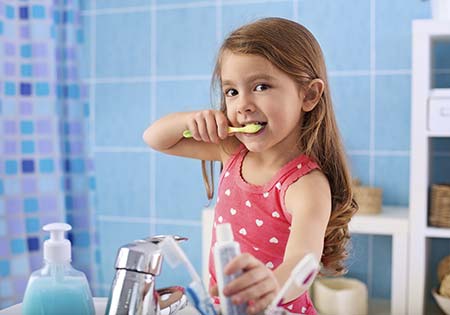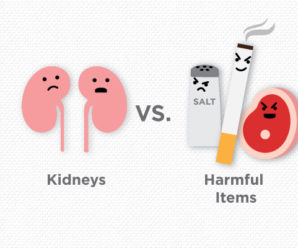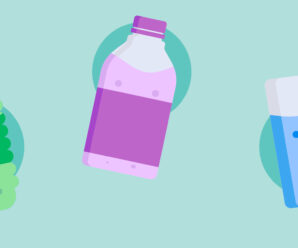 Establishing good oral hygiene practices for your child is a parent’s challenge that really starts before that first pearly-white tooth pops through.
Establishing good oral hygiene practices for your child is a parent’s challenge that really starts before that first pearly-white tooth pops through.
“The American Dental Association and American Academy of Pediatric Dentistry both recommend cleaning gums in a child’s mouth with a cloth and water or using a soft brush,” said Dr. Andrew Bitter, a dentist who sees patients at the Family Health Center of Marshfield (FHC) Rhinelander Dental Center, operated in conjunction with Marshfield Clinic.
Once a child has teeth, regular brushing with adult supervision begins.
A rice grain-sized amount of children’s fluoride toothpaste is all that’s needed. Children don’t need too much fluoride and they often don’t adequately spit toothpaste. If too much is ingested, it could cause fluorosis of the teeth.
For kids between 3-6 years old, a pea-sized amount of toothpaste is sufficient.
“Stay with the child while brushing until they have proper technique and can spit on their own,” Bitter said. “Once they can brush without swallowing toothpaste, they can move onto more traditional toothpaste.”
Bitter recommends using name-brand toothpaste that contains fluoride. Flavored and colorful toothpaste that appeals to children is fine as long as it contains fluoride.
Floss at an early age
An aspect of oral health often overlooked in children is flossing.
As children grow and space between teeth narrows, toothbrushes can’t remove all food particles so cavities can develop.
“The most common place we see cavities is between teeth because flossing isn’t done or done correctly,” Bitter said. “Parents, from the very beginning, should spend time teaching their kids to floss.”
Bitter recommends parents use a plastic flosser – floss attached to a horseshoe shape on the end – so back molars can be reached without being bitten.
Teach children early
Practicing good oral hygiene at an early age is very important.
“Starting when a child is 2 might seem a bit young, but it’s easier than starting at 6,” Bitter said. “It all comes down to good habits. If you can teach kids proper flossing and brushing, it’s a benefit to them their entire lives.”
Why is all this so important?
Research shows a relationship between oral and systemic health.
Infections can lead to loss of tooth function and tooth loss which limits foods you can chew. Healthier foods, such as fruits and vegetables, require more chewing.







Leave a Reply